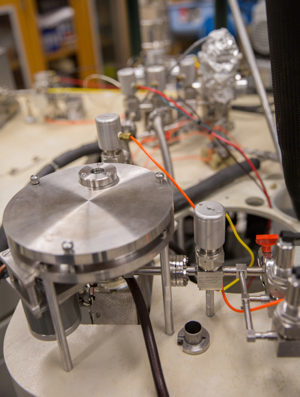Campus News
Federal funds invested in research infrastructure
UC Santa Cruz will invest nearly $6 million in its research tools this academic year, thanks to awards from the National Science Foundation and the National Institutes for Health.


Each year, we can submit three proposals to the NSF’s Major Research Instrumentation program, which typically funds about 20 percent of proposals. This year, we had the unprecedented success of seeing all three proposals funded, totaling $2.8 million. The program requires a 30 percent campus match, so our campus collaborators contributed an additional $1.2 million.
With the NSF funding, the campus will now have:
- a powerful new supercomputer for researchers in fields ranging from astrophysics to climate science;
- a new state-of-the-art spectrometer that will support research in oceanography, earth science, paleontology, anthropology, and ecology; and
- a new multifocus structured illumination microscope
We also secured about $2 million from the National Institutes of Health to support our biologists and biochemists with:
- A new cryo-electron microscope that will enable biologist to better characterize protein and virus structures, as well as image tissue and cell samples.
- A new biolayer interferometer that will serve as a critical tool for biochemistry and drug discovery.
I want to thank the faculty members for coming to our office with well-crafted ideas and our Research Development staff, who help in developing proposals.
Our staff members can help translate creative and innovative ideas into research and scholarly activities, programs, and projects, and are ready to assist our faculty with their ideas and proposals.
We have selected and submitted three proposals for this year’s round of MRI funding and continue look for other opportunities to support the campus mission.
With our excellent faculty, talented staff, and commitment to excellence, I’m optimistic we’ll be able to celebrate continued investment in our research infrastructure.